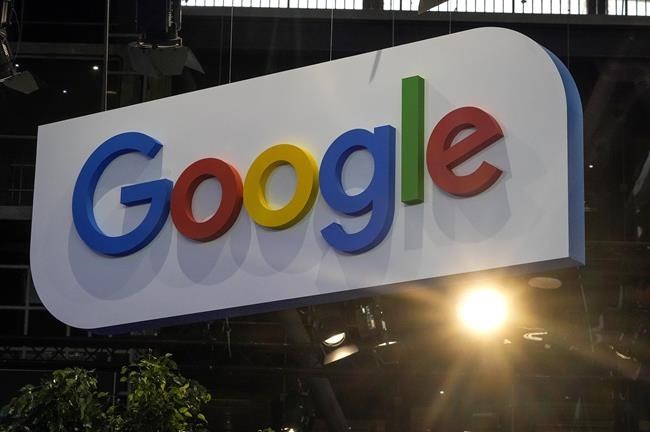TORONTO — Google is bringing its artificial intelligence chatbot to Canada as the product gets a new name.
The tech goliath announced Thursday that Canadians have access to Bard, which it is now calling Gemini, the previous name it gave to its AI model that could reason across text, images, video, audio and code.
The new Gemini allows users to submit queries and in return, instantly spits out succinct responses that can take on formats such as poems, lists, summaries or letters.
Google said users would be able to take picture of a flat tire and ask Gemini for instructions detailing how to fix it, instruct the chatbot to make a custom image for a dinner party invitation or even get it to draft a difficult text message or write a caption for a photo.
Jack Krawczyk, product lead of Gemini experiences at Google, called it a form of computing "that solves problems with you."
"I don't want to pretend that it's perfect and it won't make mistakes, but it's really improved a lot," he said in an interview with The Canadian Press.
Google positioned the announcement as a product of the company getting more clarity around Canada's Bill C-18. That bill, known as the Online News Act, requires Google and Meta to enter into agreements that compensate Canadian media companies when their content is posted on or repurposed by the platforms.
"When Bard started a year ago expanding to new markets and new languages globally, a team here in Canada was still working to find constructive resolutions to Bill C-18," Krawczyk said.
Google, which had threatened to block Canadian news from its products, agreed to make annual payments to news companies collectively totalling $100 million in November. Meta has removed Canadian news from its platforms.
"Fortunately, the government has committed to addressing our core issues with the bill and we continue to send valuable traffic to publishers and that really helped us clear a path to launch Gemini in Canada,"Krawczyk said.
"We've been spending the last several weeks getting the final preparations together."
Gemini, he said, will be available in some 40 languages worldwide, including English and Québécois French.Â
A premium version of the product called Advanced Gemini will also be available as part of a plan called Google One AI Premium, which will cost $26.99 per month.Â
That service will respond to even more complex prompts and aid in more elaborate tasks like coding, creating step-by-step instructions and generating sample quizzes.Â
Subscribers will be able to use Gemini in Gmail, Google Docs, Slides and Sheets and get access to two terabytes in storage. However, the paid product will only be available in English for now.
Users can access Gemini and Gemini Advanced onlineand on phones through the Google app for iOS and a new Android app.
Both Gemini and Gemini Advanced are outfitted with a feature called "double check" that can be used to generate web pages and other sources verifying the information the services produce.Â
Asked about whether Google will protect users' data, Krawczyk said when people sign up for Gemini, the service will spell out how their information is being used. They will have the ability to opt in to allowing Google to use their information to improve the product and can later pull that permission.
Google announced Bard last February and opened early access for it in March. It was widely seen as a response to ChatGPT, a similar chatbot released by San Francisco-based rival OpenAI in November 2022. ChatGPT was an example of how far AI had come and kick-started a race to innovate with the technology.
Microsoft has deployed ChatGPT in its Bing search engine and Edge web browser, while Facebook and Instagram's owner is dabbling with Meta AI, a chatbot U.S. users can query or request jokes from in one-on-one or group conversations.
Google brought Bard to 230 countries and territories in July, but kept the chatbot from Canada along with Russia, North Korea, China, Belarus, Afghanistan and Syria.
Asked about the decision to withhold Bard from Canada at the time, Google said it was working through regulatory uncertainty related to the chatbot.Â
This report by The Canadian Press was first published Feb. 8, 2024.
Tara Deschamps, The Canadian Press



